John Hurrell – 5 September, 2025
Whatever your art tastes or private enthusiasms, this is a very handy book for developing interests you may have only recently started investigating. The short succinct articles provide multiple doorways to ideational corridors you might want to explore. There is a wide range of practitioners discussed, that includes many unanticipated approaches to distinctive art personalities, their research and exhibiting characteristics.
Wellington
Christina Barton
Out of the Blue: Essays on Artists from Aotearoa New Zealand 1985 - 2021
Editor: Penny Pickard / Introduction: Elizabeth Eastmond / Designer: Alice Bonifant / Coloured illustrations / 400pp; softback
Arranged in chronological order, the thirty-seven Tina Barton essays in this elegant highly informative paperback, published with a striking cover from a nautical video by Maddie Leach who also provides an afterword, are—as you’d expect from a meticulously professional academic like Barton (one passionate about contemporary art and its latest historic developments)—wide ranging, often subtle, and erudite.
For this conspicuously diverse collection the pieces have been pulled from a variety of publishing sources, not always exhibition publications—although many of them are. It is also a very useful companion for the very different but also valuable anthologies like Wystan Curnow’s The Critic’s Part: Art Writings 1971-2013 (2014), Roger Horrocks’ Re-Inventing New Zealand (2016), and Ian Wedde’s well illustrated How to be Nowhere (1995), which have a different expository (slightly less promotional) feel.
Besides referencing the Pacific, Barton’s clever idiomatic title suggests discussions that are unanticipated, while the examined artists or associated movements are mostly well known through the enthusiastic labours of critics and art historians like herself and Eastmond. It demonstrates the variety of contemporary art practices then (and now) possible in Aotearoa, and how and why they developed.
Hence its value. Whatever your art tastes or private enthusiasms, this is a very handy book for developing interests you may have only recently started investigating. The short succinct articles provide multiple doorways to ideational corridors you might want to explore. There is a wide range of practitioners discussed, that includes many unanticipated approaches to distinctive art personalities, their research and exhibiting characteristics.
Subsequently there are many surprises to be unearthed in these lucid accounts of the practices of 39 artists (19 men and 20 women)-written over a period of six years—such is the complexity of art which at times is an unpredictable activity. More than, say, the unravelling of stated and predetermined ‘artistic’ processes.
Here is the line-up of artists discussed in depth: Claudia Pond Eyley, Peter Roche, Linda Buis, Maria Olsen, et al., Julian Dashper, Marie Shannon, Leon van den Eijkel, Caroline Williams, David Clegg, Bill Culbert, Pip Culbert, Don Peebles, Julia Morison, Martin Grant, Bill Hammond, Pauline Rhodes, Ans Westra, Maddie Leach, Frances Hodgkins, Phil Dadson, Shane Cotton, Fiona Amundsen, Jim Allen, Ann Shelton, Billy Apple, Bruce Barber, Vivian Lynn, David Hatcher, Gordon Walters, Kim Pieters, Shannon Te Ao, Andrew Beck, Kate Newby, Joyce Campbell, Edith Amituanai, Louise Henderson, Zac Langdon-Pole, Paul Cullen.
If you are familiar with the NZ ‘art world’, you can see from this list how diverse the personalities are. Photographers like Amundsen, Amituanai, Campbell, Shannon and Shelton are effortlessly mixed in with hardcore conceptualists like Barber, Clegg, Leach and Apple.
One conspicuous problem is the overall shortage of images, though a few is obviously better than none at all. Each essay only has one photograph, but sometimes two or three are needed to communicate her points effectively, despite her considerable skills with language. Barton’s dense texts can suffer when events or illustrations are unseen by the reader, but sensibly these visual items are clearly named, so these can be googled for more explanatory imagery online.
Even though she is a champion of sculpture, conceptual art, feminist theory, performance art and other aspects of the so called ‘avant-garde,’ Barton is also startlingly good on other areas. The sections on painters such as Dashper, Pieters and Walters are really interesting, though the Hammond section is a little disappointing. It lacks sufficient exploration (in my opinion) of the artist’s interest in comics design - something that Allan Smith has already thoroughly researched anyway.
In her elucidatory approach to seeking out meaning, Barton usually sticks closely to what the artists intend. Most of these pieces accompanied gallery publications, and are promotional/educational, not magazine items where the writer could (if she wished) take semantic interpretations far beyond the anticipated interpretative mindset of the original producers.
This is a great book. A wonderfully compact and lucid introductory survey for those who may initially be freaked out by the variety, complexity and obscurity of our current contemporary art practices. Barton is a natural ‘explainer’ who is always keen to communicate salient (but commonly perceived as ‘obscure’) aspects effectively.
John Hurrell
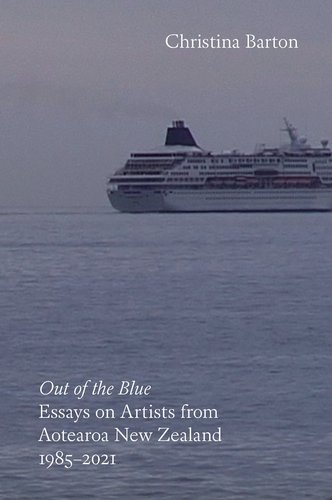
 Advertising in this column
Advertising in this column Two Rooms presents a program of residencies and projects
Two Rooms presents a program of residencies and projects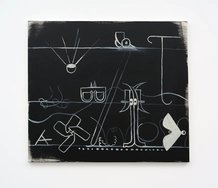
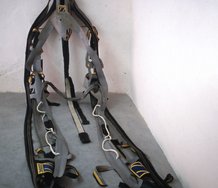
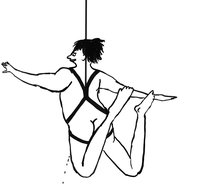
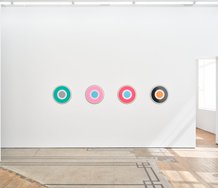
This Discussion has 0 comments.
Comment
Participate
Register to Participate.
Sign in
Sign in to an existing account.